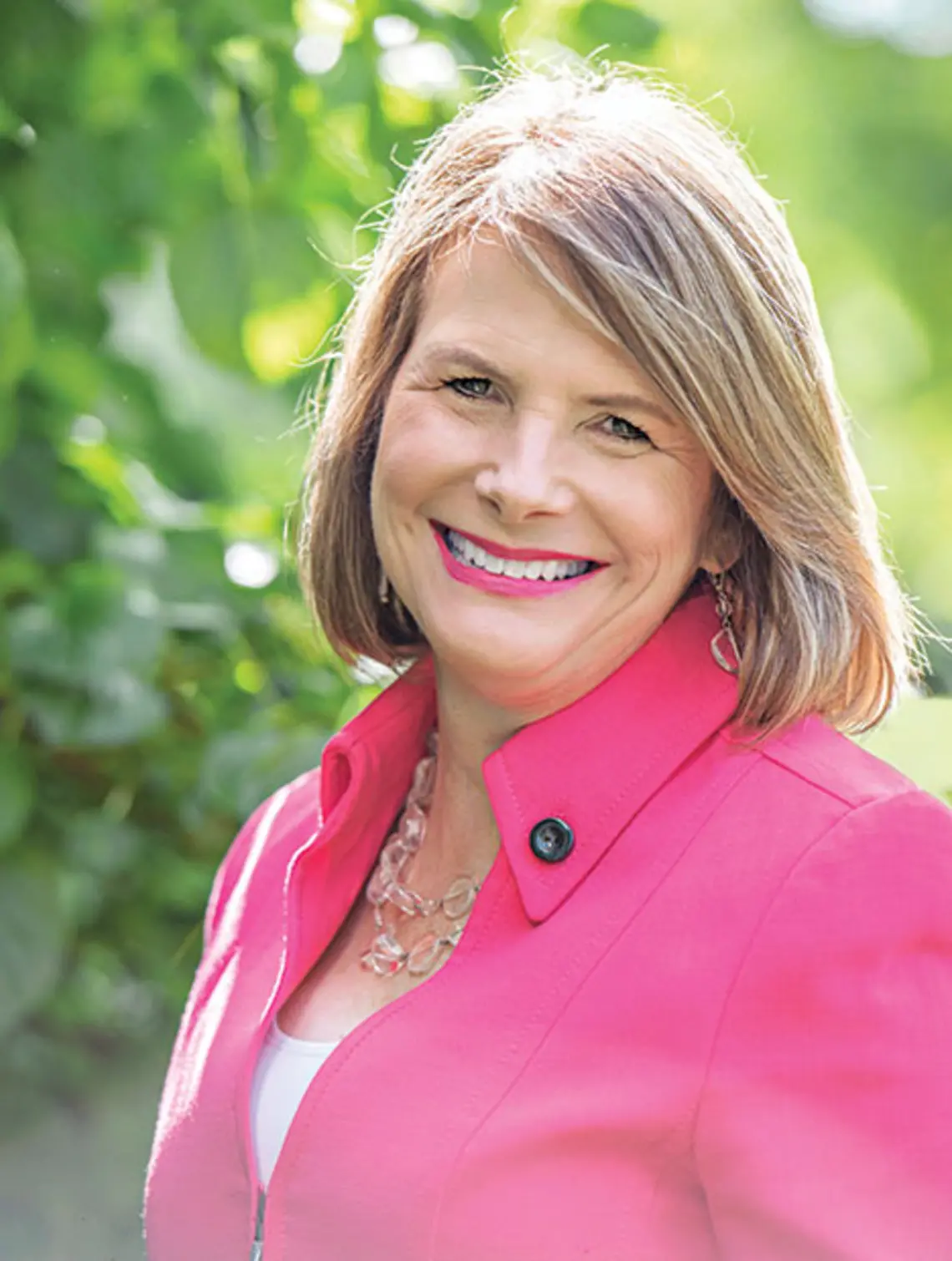
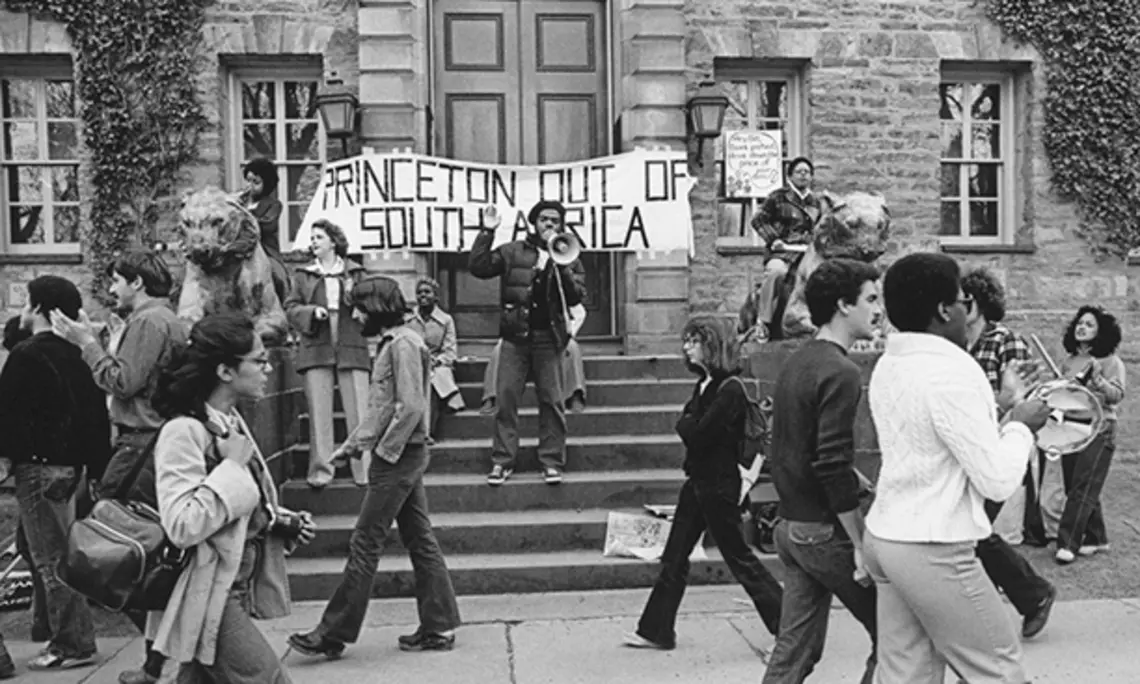
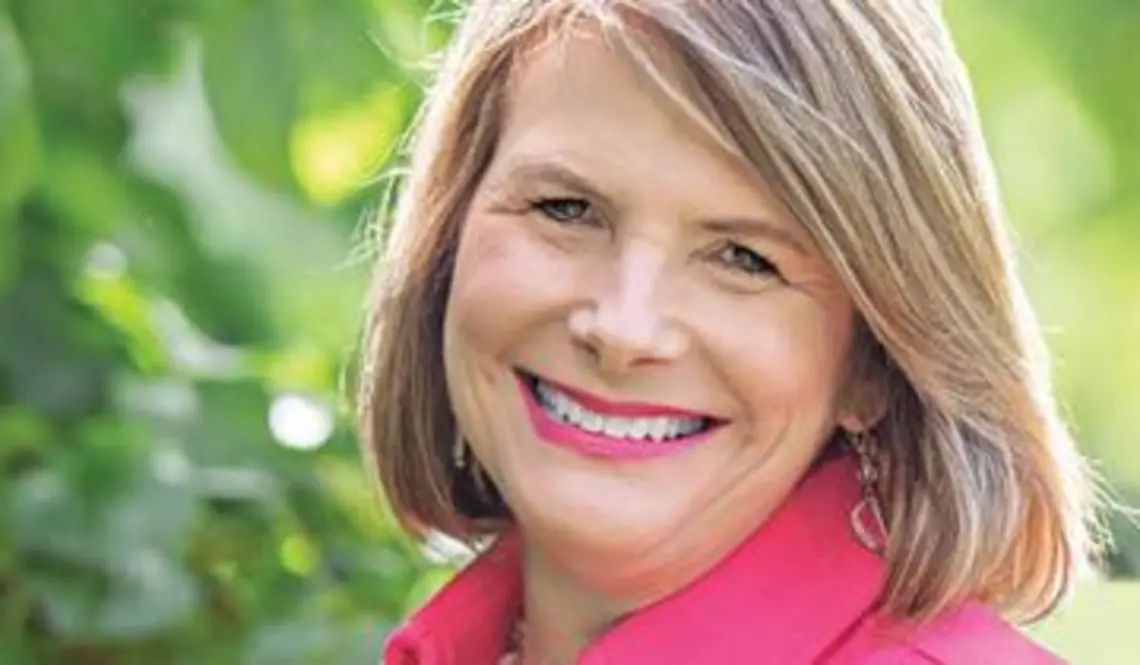
On this episode of PAW Tracks, Christine Caffrey Johnson ’81 talks about the difficulty of finding her place at Princeton and some of the activities that captured her interest. As an undergraduate, she planned a conference to help her peers think about ways to balance work and family life. Years later, the conversation continues.
PAW Tracks is also available on iTunes — click here to subscribe
TRANSCRIPT
Brett Tomlinson: I’m Brett Tomlinson, the digital editor of the Princeton Alumni Weekly. Each year at Reunions, we interview alumni for the PAW Tracks podcast, and we’ll be doing it again in June. If you have a Princeton story to share, please email us at paw@princeton.edu or click on the Share Your Story link on the PAW website. We’d love to hear from you.
On this episode of PAW Tracks, we hear from Christine Caffrey Johnson ’81. She came to Princeton from a suburban high school in Edina, Minn., with no previous connection to the Ivy League. Her father had gone to college while serving in the army, but no one else in her family had ever gone away to school.
Getting in to Princeton, it turned out, was the easy part. Fitting in was more difficult.
Christine Caffrey Johnson: Coming from a family where nobody went away to a four-year college, there weren’t really conversations happening about what are we expecting — I had no idea. All I knew was I had reached my goal. I got into the best school. And unfortunately, and it would really cripple me, I had no plans for the next four years. I had no idea. I didn’t have any goals, other than “I want to graduate.” There was no preparation. No one had talked to me, nobody had prepared me. And it didn’t get any better, certainly through my freshman year. It was brutal.
All I knew was I needed to graduate from Princeton so I could get a job. And you know part of it too — and I would come here again, as hard as all that is. Part of the reason I want to share it is just to contribute to the notion that as President Eisgruber talks about increased diversity, socioeconomically, that also cuts across race. Where we’re bringing kids in that have no background — I mean, I essentially was a first-generation college kid. And there are a lot of questions and support needs that may not be intuitive when most people come from families that have college-educated parents.
But it was it was a good experience. I got through my freshman year, I had a reasonable time during the summer, I entered into my sophomore year, I started identifying the things that were important to me that I want to be involved in. I had gotten very involved during my freshman year in the [anti-]apartheid movement and took part in the sit-in. I remember thinking when the picture got taken, I was on the steps outside Nassau Hall, and I thought to myself, “I will never be able to run for public office.” That picture will be dragged out somewhere. Of course that would not be the case these days, but that was the thinking back then.
BT: Johnson majored in economics and took an interest in activities outside the classroom. She helped to start the Student Health Advisory Board, which remains active on campus today.
One of her most memorable experiences came in her senior year, when she led the planning of a conference on dual-career relationships — couples in which both partners work outside the home. It was a hot topic at Princeton after a front-page New York Times story in December 1980 highlighted the career and family choices that young women with Ivy League degrees were facing.
CCJ: We were kind of looking around in 1980 going, “OK how is this supposed to work?” I’m going to be a lawyer or I’m going to go to Wall Street and so is my spouse. And how do the kids fit in?
I don’t remember where the initial idea came from, but it must have been someone on campus suggesting it. I ran with it, we had a group put together. And it was a conference that was held the spring of 1981. I probably should have been spending more time on my thesis, but that’s what got my attention. It was covered up and down the East Coast in papers, it was on the Today Show, because people were really asking how is this supposed to work. We had people from campus, we had students, we invited people from different agencies that were looking at that. There was a nonprofit called Catalyst in New York that has morphed into something else now. They were trying to address that issue.
BT: As Johnson said at the time, it was “an opportunity for men and women to discuss the complexities of dual-career lifestyles and the changes they are fostering in American society.” More than three decades later, the conversation continues, and evolves, in books like Unfinished Business, by Anne-Marie Slaughter ’80, and on campus, in panels at Reunions.
CCJ: And what’s been interesting to me as I come back for the major reunions is to see how every 10 years this issue has kind of resurfaced. But it’s also shifted. You know the gals who came to Princeton initially, that was not a question they had. They’re breaking the glass ceiling, they’re not thinking about how to work kids into their career. Then we’re starting to ask, and every 10 years, as there is a loosening of opportunities — and certainly now, with people being able to work at home and job sharing and all that — it has morphed. I remember, though, people being horrified coming here and there was a panel, maybe 15 years ago, being horrified at these young women: Don’t they know what we all did so that they could have the opportunities? And I’m like, no — people think about where they are, in their moment, and no, they’re not going to worry about what happened back then. And they should keep pushing. So it’s very exciting to see now, asking those questions, and where we are with women having more opportunities.
BT: Our thanks to Christine Caffrey Johnson for sharing her story. Brett Tomlinson produced this episode. The music is licensed from FirstCom Music.
Paw in print
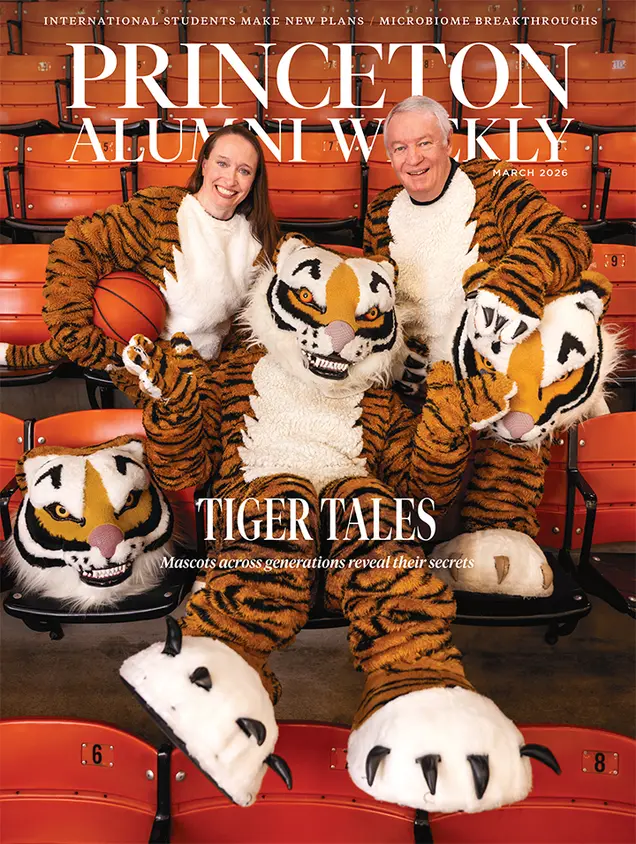
March 2026
Mascots across generations; biome breakthroughs; international students make new plans.


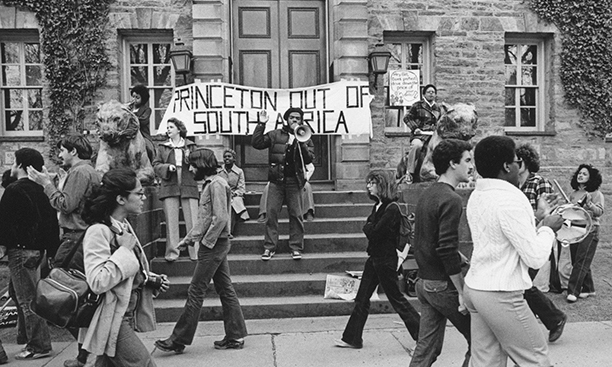
No responses yet